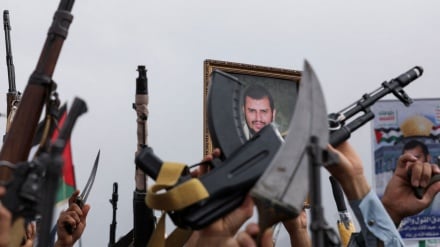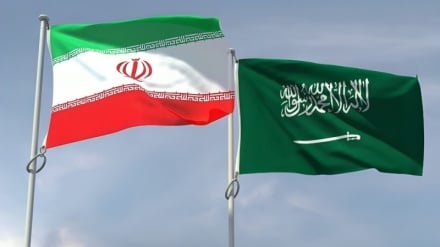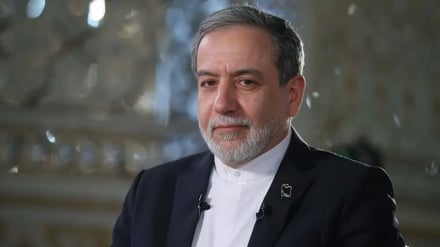MBS’ Yemen quandary
Saudi Arabia is badly bogged down in Yemen, which for the past four-and-a-half years has thwarted the designs of the regime in Riyadh to browbeat it into submission through the most intense bombing the world has seen in this century that has resulted in the death of almost a hundred thousand men, women, and children, in addition to the destruction of the infrastructure of the Arab World’s most poorest country.
Stay with us for an article in this regard on the ‘Lobe.Log’ site, titled: “MBS’ Yemen Quandary”.
The author is Thomas W. Lippman, a Washington-based author and journalist who has written about West Asian affairs and American foreign policy for more than four decades, specializing in US-Saudi relations. In 2003 he was the principal writer on the war in Iraq for the daily ‘Washington Post’.
The recent decision by the United Arab Emirates to withdraw most of its invading troops from Yemen is unlikely to end the multiple conflicts raging in that unhappy country, but it could have wider implications for relations between the UAE and its most important regional partner, Saudi Arabia.
Saudi Arabia, in the person of Heir Apparent Mohamed bin Salman, or MBS, is committed to the war against the popular Ansarallah Movement defending Yemen, and is usually identified as the leader of the “coalition” conducting the long-running operation. But it is the UAE that has been doing most of the fighting on the ground; the Saudis have limited themselves almost entirely to air strikes.
Even with the UAE fully on board, the Saudis are no closer to achieving their aims than they were when they intervened in the Yemen conflict over four years ago. Now they remain committed to the campaign but lack their most important tool for waging it.
UAE officials have said that the withdrawal decision has been under discussion for some time and that the Saudis were on board with it, and so far the Saudis have not said otherwise, at least publicly. But it is hard to escape the conclusion that the UAE withdrawal has left Saudi Arabia to play a much weaker hand.
A recent report in the New York Times put it bluntly: “While the Saudis have fought almost entirely from the air, the Emiratis, seasoned by years of combat alongside the American military in Afghanistan and elsewhere, led virtually every successful ground advance. Behind the scenes, Emirati officers, weapons and money played an equally critical role in holding together a fractious alliance of mutually hostile Yemeni militias, which have already begun jostling to fill the power vacuum left by the Emiratis. The Emirati drawdown has also severely weakened the Saudis’ bargaining power, raising the potential cost to MBS of any negotiations to end the disastrous war.
Nevertheless, former U.S. ambassador to Yemen Gerald Feierstein predicted recently that the Saudis “will carry on their campaign regardless of what the Emiratis or the United States do” because they believe they have no alternative.
The Saudis believe that the conflict with Yemen’s popular Ansarallah Movement is a war of necessity, not a war of choice. The intransigent Saudis, whose resources are being drained, are not prepared to tolerate an independent Yemen, although they cannot stop the regular targeting of Saudi airports and oil/industrial installations through radar escaping missiles and drones.
As recently as May, after meeting in Washington with Secretary of State Mike Pompeo and White House National Security Advisor John Bolton, the UAE’s minister of foreign affairs, Abdullah bin Zayed Aal-e Nahyan, gave no indication that his country was preparing to retreat either from the war against the Ansarallah Movement or from the separate conflict in central Yemen against al-Qaeda in the Arabian Peninsula.
Now, however, the Emiratis say they need to redeploy some of their forces back home since they have trained enough Yemeni soldiers that the Yemenis can carry more of the burden.
While the UAE and Saudi Arabia have supported different factions in the complicated Yemeni conflict, they have otherwise been acting in policy lockstep all around the region, especially against the Islamic Republic of Iran. Mohamed bin Zayed or MBZ, the Heir Apparent to his elder brother Sheikh Khalifa of the Emirate of Abu Dhabi, has been a mentor and friend to his equally reckless Saudi counterpart, MBS.
Together they were the architects of the boycott imposed on neighboring Qatar by their countries, along with Egypt and Bahrain. And they have been united in financial support for the autocratic Egyptian regime of Abdel Fattah as-Sisi. The boycott of Qatar, like the Yemen campaign, has not only failed to achieve its goal of forcing Qatar to turn on the organization known as the Muslim Brotherhood, it has driven Qatar into closer economic cooperation with Iran. Nor has Qatar shut down the cable news network al-Jazeera or expelled a Turkish military contingent, as the Saudis and the Emiratis demanded.
The boycott disrupted family life, work patterns, and air travel all around the Persian Gulf, but the Qataris soon adjusted. They substituted goods from Turkey and Iran for products they used to buy from Saudi Arabia, and are carrying on their lucrative natural gas export business as before. The only substantive accomplishment of the boycott has been the all-but-official breakup of the Persian Gulf Cooperation Council, a grouping of the six sheikhdoms on the Arab side of the Persian Gulf aimed at fostering trade and economic integration.
With the UAE, Saudi Arabia and Bahrain united in boycotting Qatar, the two remaining members, Kuwait and Oman, have been left to futile efforts to heal the breach.
Nine months have passed since Pompeo called for an end to the war in Yemen. The United States, he said, “calls on all parties to support UN Special Envoy Martin Griffiths in finding a peaceful solution to the conflict in Yemen based on the agreed references.”
Griffith is still at work, looking for some political formula that could bring an end to the war, but he has failed so far because none of the combatants has been damaged enough to feel compelled to settle. Now the pressure on Saudi Arabia to find some face-saving exit can only increase.
After over four years of what was supposed to be a quick war against the Ansarallah Movement, there is no indication of success. Saudi armed forces have never ventured into Yemen, and whatever casualties they have suffered were in the attacks launched by the Yemenis across their northern borders.
The Emiratis and several thousand Sudanese mercenary troops have done most of the fighting on the ground, and according to military analysts Saudi pilots avoid anti-aircraft fire by flying at altitudes the guns can’t reach—which unfortunately leads to inaccurate targeting and to civilian casualties.
The UAE’s reduced commitment to the war in Yemen may not presage any larger breach between MBZ and MBS. But if it does, it could force the headstrong MBS to rearrange Saudi Arabia’s positions all around the region. If he can’t count on MBZ to stand with him, who else is there?
AS/SS


